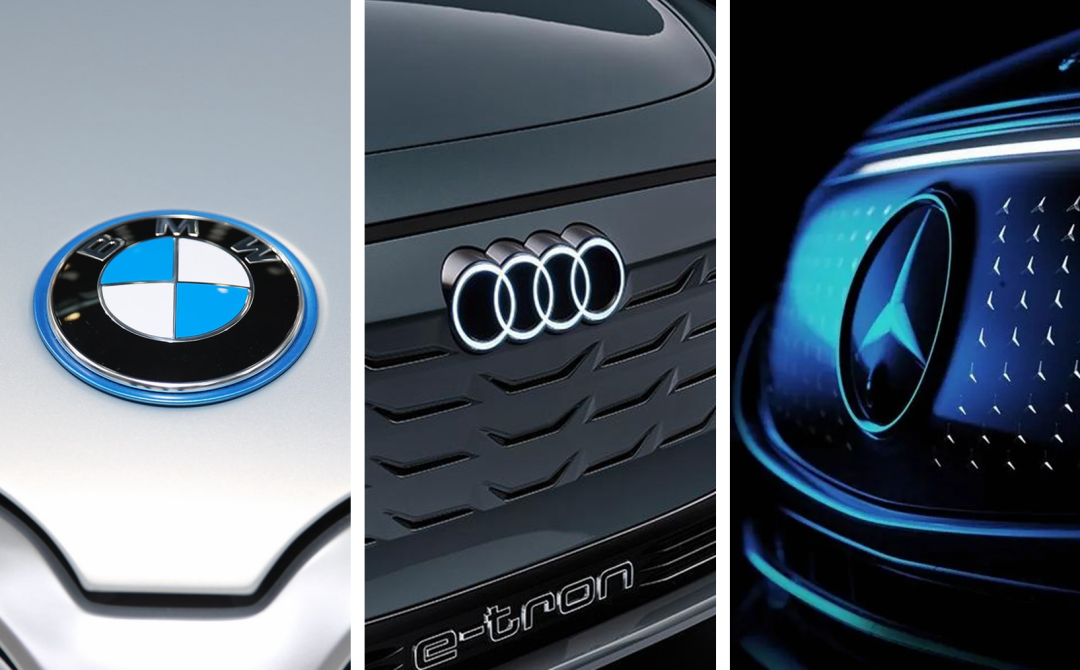
Recently, an increasing number of luxury brands have joined the promotional campaign. Among them, not only second-tier luxury brands like Cadillac, Lexus, and Volvo but also first-tier luxury brands BBA (BMW, BENZ, AUDI) have become hot topics due to 'price cuts'. Data shows that in May, the promotional efforts for luxury cars reached a peak of 21.7%. Currently, it has become common for both first and second-tier luxury brand models to be sold at significantly reduced prices with dealers making zero profit or even selling at a loss.

 photo credit:Carresearch
photo credit:Carresearch
From model competition to price competition, because of new energy vehicles, the domestic market poses unprecedented challenges for multinational car companies.
Price is tumbling and customers are still waiting
According to media reports, BMW i3 and i5 pure electric car models are currently being offered at significant discounts. The BMW i3 model is available at a 50% discount, with prices nearly halved, indicating a substantial price reduction. During the investigation, the official website lists the MSRP of BMW i3 and i5 as 353,900 yuan and 439,900 yuan respectively; however, one can currently purchase the basic models for only about 170,000 yuan and 300,000 yuan.
The reporter also visited several luxury brand 4S stores in Beijing, where new energy vehicle models from Mercedes-Benz and Audi were heavily discounted, up to 60-70% off.
Nowadays, salespeople from various BBA brands have informed me that without discounts, cars are simply overlooked by potential buyers. Some even mentioned that the price reduction of the BMW i3 led to a sudden surge in customers visiting dealerships to explore new energy vehicles, which can be seen as an indirect form of promotion.
In addition to new energy vehicles, sales representatives also mentioned various discounts available for fuel-powered cars in the store. Among them, the Audi A4L is particularly attractive with a suggested retail price ranging from 321,800 to 400,800 yuan; it is currently being sold at less than 2 million yuan after a discount of up to 120,000 yuan. Furthermore, both popular Mercedes-Benz models - GLC and C-Class - have approximately a discount of 100,000 yuan each.
The author also interviewed several customers in the store, and many had a wait-and-see attitude. "I've heard about BBA's previous significant price reductions on new energy vehicles, so I want to take a look, but I'm still undecided about buying."
The concern is that luxury brands will greatly diminish in value due to significant price reductions of many car models. Previously, people bought luxury cars for prestige; however, now with the overall economic downturn, even with price cuts, they still can't compete with domestically produced vehicles in terms of certain features and range. It's better to prioritize getting more value for your money.
The customers prefer to believe the power of a product
Behind the significant price reductions lies the sales anxiety of traditional luxury brands. From January to May this year, Mercedes-Benz's monthly sales of new energy vehicles ranged from 1,381 units to 2,636 units. The highest monthly sales for Audi Q4 e-tron was only 1,523 units with a low of 750 units in February. BMW outperformed with a maximum monthly sale of up to 9,000 units. On one hand, fuel-powered cars are experiencing declining profit margins; on the other hand, electric vehicle sales remain stagnant. This presents a challenging situation for luxury brands.
Salespeople acknowledge that luxury brands offer significantly discounted premiums on new energy models compared to domestic brands, as millennials and post-90s generation, the main buyers of new energy vehicles, do not exhibit strong brand loyalty towards luxury brands. Conversely, Xiaomi and similar brands attract younger consumers with their focus on features and specifications that traditional luxury brands cannot match.
An increasing number of Chinese consumers are becoming less concerned about a brand's origin and more focused on its functionalities, leading to a rise in the purchase volume of self-owned brand products in recent years.
Although overseas brands dominate the traditional fuel vehicle market, domestic brands have taken a commanding lead in the new energy vehicle market and gained higher brand recognition due to their consistent cost-effectiveness advantage in smart electric vehicles, as well as rapid progress and performance in intelligent connectivity and advanced autonomous driving.
According to McKinsey's research, domestic brands accounted for 25% of registered private cars in 2012, while foreign brands made up the remaining 75%. However, by September 2022, the proportion of domestic brands had increased significantly to 41%, with their share in pure electric vehicle registrations reaching an impressive 80%.
Domestic new energy vehicles are gaining momentum and impacting the luxury brands market, including BBA. Consumers are now considering domestically manufactured new energy vehicles with improved configurations and better cost-effectiveness, indicating a more rational approach in the market. According to an experienced industry analyst, the high price tags associated with luxury brands have created a perception of low cost-effectiveness.
From the perspective of dealers, weak demand and poor sales have led to increased dealer inventory, tying up their capital. Holding onto inventory for longer periods increases their cost of funds as most dealers finance their vehicle purchases through loans. They would prefer to sell cars at a lower price rather than incur higher interest costs. At this point, even if manufacturers want to control prices, they are unable to do so.
According to a research report by Soochow Securities, besides ultra-luxury brands, starting from 2021, brands like BMW, Mercedes-Benz, Audi, and Cadillac have consistently lowered their prices during the sales process. The Chinese automobile market is transitioning from brand focus to value focus, where product strength has become the primary factor influencing purchases.
Translator:Wei Xiong

 Room 1104,Block B,JingBan Building,6 Middle Beisanhuan Road,Xicheng District,Beijing
Room 1104,Block B,JingBan Building,6 Middle Beisanhuan Road,Xicheng District,Beijing
 (8610)62383600
(8610)62383600
 quanqixiang@carresearch.cn
quanqixiang@carresearch.cn
 京公网安备:11010202007638号|京ICP备17032593号-2|Report illegal and bad information:010-65993545-8019 jubao@carresearch.com
京公网安备:11010202007638号|京ICP备17032593号-2|Report illegal and bad information:010-65993545-8019 jubao@carresearch.com
Legal support:Beijing Yingke Law Firm|All rights reserved, DO NOT reproduce without permission